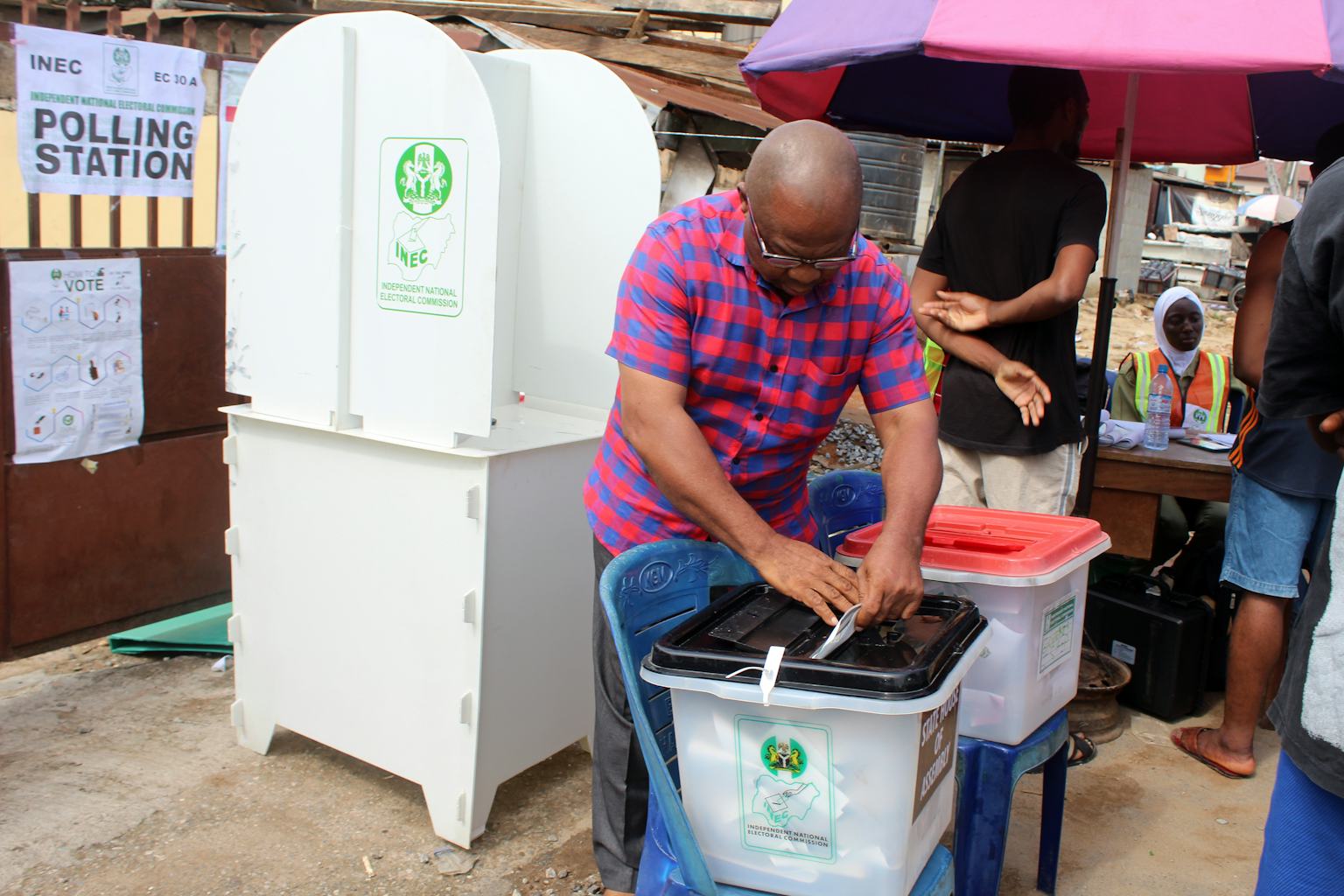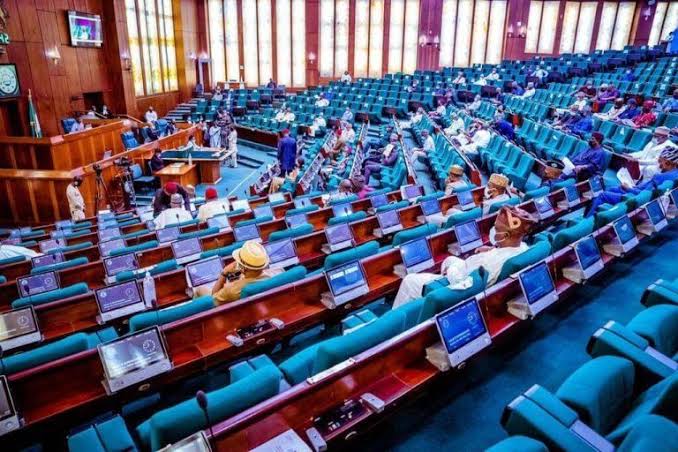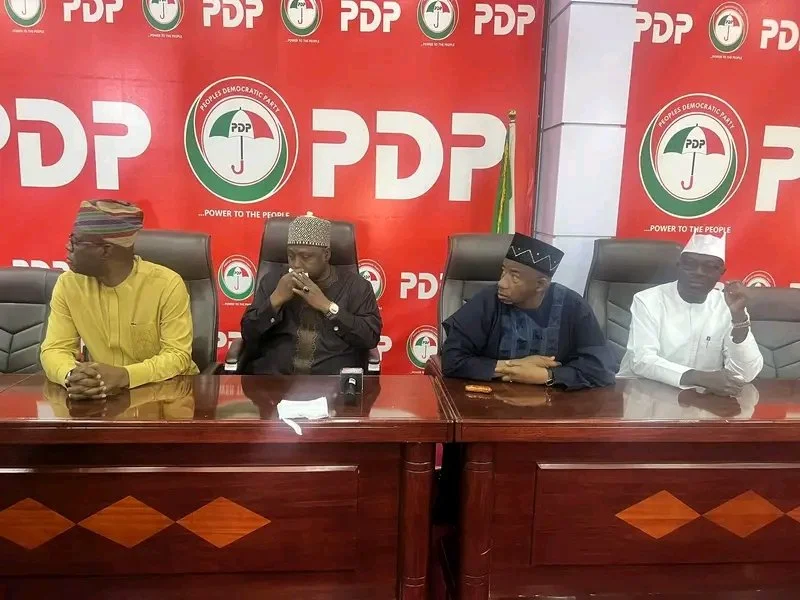By Isaac Samuel
As Nigeria inches toward another general election in 2027, a familiar ritual of electoral reforms is staring at Nigerians.For every election cycle in Nigeria is a new chorus of amending the electoral act.
The Senate’s recent proposed amendments to the 2022 Electoral Act, coupled with the appointment of Professor Joash Ojo Amupitan as Chairman of the Independent National Electoral Commission (INEC), have brought back an old debate about the power of law to redeem Nigeria’s troubled elections.
But many stakeholders and observers wonder if a new law and a fresh face at INEC can truly deliver the democratic miracle Nigerians have long prayed for.
Since independence, Nigeria’s democracy has been both defined and defiled by its elections. Each transition promised renewal but perhaps unfortunately each ended in recrimination.
From the days of the Federal Electoral Commission (FEDECO) of the Second Republic to the National Electoral Commission (NEC) of the Babangida years, and now INEC under the Fourth Republic, the story has been one of progress written in pencil which is easily erased by politics.
The return to civil rule in 1999 gave Nigeria a new beginning. The 1999 Constitution created INEC and set the foundation for the conduct of elections. But that foundation analysts, believe, was weak. The early elections, that of 1999, 2003, and the notoriously flawed 2007 polls exposed the cracks in Nigeria’s election management.
For a fact, elections that have been held for the past 26 years were dubbed with inflated registers, result manipulation, thuggery, technology failure and the absence of credible mechanisms for accountability.
In the aftermath of the 2007 debacle, even the late President Umaru Musa Yar’Adua admitted that the election which brought him to power was flawed. That rare moment of presidential honesty birthed the Uwais Electoral Reform Committee, whose recommendations inspired the landmark Electoral Act of 2010.
The 2010 Electoral Act attempted to professionalise INEC, tightened election timelines, introduced greater transparency in results collation, and sought to curb the excesses of political parties.
The 2011 and 2015 elections both conducted under its framework were, by Nigerian standards, relatively improved. Indeed, 2015 remains the first and only time an incumbent president lost re-election in Nigeria, largely due to a perception of process credibility.
Then came the Electoral Act 2022, which replaced the 2010 law after years of legislative ping-pong. Before that time, the 8th National Assembly led by Bukola Saraki, attempted to amend the law but met gridlock after former President Muhammadu Buhari refused to assent to it.
The Electoral Act 2022, introduced technological innovations like the Bimodal Voter Accreditation System (BVAS) and the INEC Result Viewing Portal (IReV). Nigerians believed technology had finally outsmarted manipulation. Yet, the 2023 general election would brutally test that optimism.
While the 2022 Act modernised Nigeria’s electoral process, its implementation was marred by technical glitches, poor logistics, and the perennial ghost of suspicion. During the 2027 elections, BVAS failed in parts of the country and results were delayed; and the promised transparency of IReV faltered.
It was against this background that the National Assembly has proposed new amendments to the 2022 Act. The key change mandates that presidential and governorship elections be conducted not later than 185 days before the expiration of incumbents’ tenure. That is roughly six months. The same rule applies to National and State Assembly polls.
For the amendment that presidential and governorship elections be conducted not later than 185 days before the expiration of incumbents’ tenure, the idea is simple. To buy INEC more time to handle post-election litigation, logistical review, and transition management before swearing-in. In theory, it’s a sensible move. The 2023 election showed that courts barely had time to conclude petitions before inauguration day. If the new law gives the judiciary breathing space, the country might avoid the embarrassment of sacking governors and legislators years after they’ve taken office.
Other highlights of the proposed law include the recognition of voting rights for inmates and the obligation on INEC to register eligible prisoners; the introduction of digital voter identification through electronically generated voter cards with QR codes; and tougher sanctions for electoral offences, including mandatory prison terms for falsifying results or obstructing election officials.
Other provisions include an expanded delegate framework for indirect primaries to standardise internal party representation, mandatory financial audits for INEC within six months of each financial year to promote transparency, and higher campaign spending and donation limits to reflect current economic realities.
The draft also provides for early voting for Nigerians whose official duties prevent them from voting on election day. Section 44(1) of the proposed Act stipulates that a date shall be set aside for early voting not later than 14 days before the main election. Security personnel, accredited journalists, INEC officials, domestic observers, and ad hoc staff are among those eligible.
In line with an existing court judgment mandating INEC to make provisions for prison voting, the bill further states that inmates shall be regarded as ordinary residents of the place where they are lawfully imprisoned or detained.
Another major amendment is in Section 65(2), which empowers INEC to review any declaration or return within seven days if it receives credible reports that such declaration was made under duress or contrary to established procedures.
On paper, this is revolutionary. For the first time, Nigeria’s electoral law would explicitly recognise prison voting, align election timelines with global best practices, and use digital technology to verify voter identity. Yet, Nigerians know all too well that paper reforms do not always translate to political reality.
Keen political observers are of the opinion that Nigeria does not lack laws but lacks fidelity to them. Every major election reform since 1999 was born of good intention and killed by bad execution.
The 2010 Act promised cleaner primaries and politicians subverted it. The 2022 Act promised transparent transmission; bureaucratic inertia and alleged sabotage wrecked it. Now, the 2025 amendment promises efficiency and inclusivity. Will it, too, end as another good idea strangled by Nigeria’s political culture?
The test will not be in what the law says, but in who applies it and how. This is where the new man at the helm, Professor Joash Ojo Amupitan, SAN, confirmed by the Senate this week as INEC Chairman comes in.
Amupitan’s appointment is significant this period. A professor of law and Senior Advocate of Nigeria, he arrives at INEC with an academic gravitas rarely seen in Nigeria’s bureaucracy. By training and temperament, he understands the letter of the law; by timing, he inherits its toughest challenge. That is to redeem faith in the electoral process before the 2027 polls and this start with the November 8, governorship election.
His arrival has been met with cautious optimism. Amupitan’s perceived detachment from partisan politics offers hope. He takes charge of an institution battered by criticism after the 2023 elections but he also inherits opportunity.
The proposed amendments if it scales through, give him tools previous chairmen lacked which is legal clarity, extended timelines, and digital authority. If he uses them well, he could reposition INEC from a reactive bureaucracy to a proactive electoral institution.
The real question, however, is whether he will be allowed to. Independence is not self-declared. It is asserted and defended. From the days of Maurice Iwu to Mahmood Yakubu, INEC chairmen have struggled to balance institutional autonomy with political survival. In a country where power sees every neutral act as opposition, Amupitan’s greatest test will not be law but courage.
This is because no democracy survives on law alone. The success of the 2027 election will depend on how effectively the new INEC can translate the legal text into credible practice.
For instance, consider the proposed QR-coded voter cards a technical marvel on paper. But without nationwide digital infrastructure, public awareness, and data protection, it could collapse into another BVAS-like controversy.
The same applies to early voting and inmate registration. These are noble ideas that require logistics, funding, and political buy-in. Even the provision empowering INEC to review results declared under duress will depend on courage. In a system where returning officers have been abducted, bribed, or threatened, will INEC truly overturn a compromised declaration if the powerful are involved?
Speakiny, Executive Director of Civil Society Legislative Advocacy Centre (CISLAC), Auwal Rafsanjani, said Nigeria’s judiciary remains the weakest link in its electoral chain.
According to him, election petitions drag on for months, sometimes years, adding that offenders are rarely punished and electoral offences commissions have been proposed for decades but never established.
He argued that if the new amendment again imposes stiffer penalties but fails to ensure enforcement, it will only increase the hypocrisy of Nigerian democracy.
He added that the proposal to hold elections six months before the end of tenure is a strategic masterstroke.
Rafsanjani observed that if implemented faithfully, it could save the country the embarrassment of removing governors halfway through their terms due to delayed judgments.
He said: “This will also demand discipline from political parties and vigilance from INEC. Earlier elections mean earlier primaries, tighter campaign windows, and the need for faster dispute resolution within parties. If not managed properly, it could compound internal crises and litigation”
“But these possibilities remain fragile. A law that is not enforced is worse than no law at all. It deceives citizens into believing progress has been made for the reform to matter.
“So, will the proposed amendment improve Nigeria’s elections? The honest answer is. It depends on implementation, on integrity, on institutions, and on the man now entrusted with the commission.”





